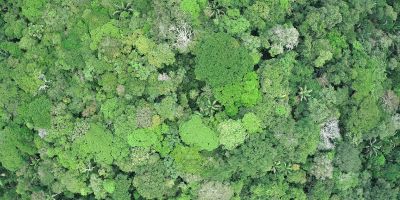Policy Brief published in Brazil seeks to stimulate research of the Amazon Rainforest
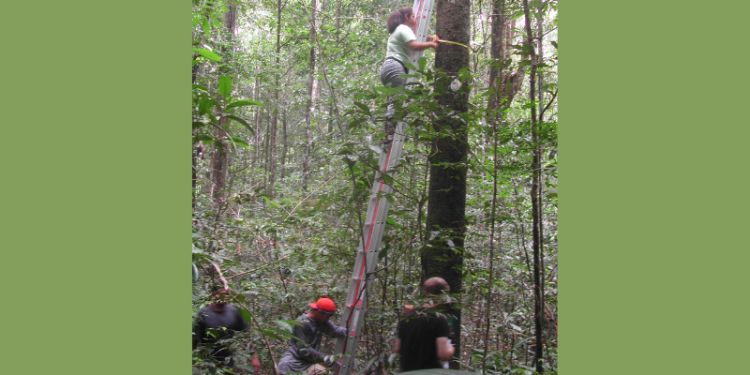
The brief advocates for a new focus on unexplored areas of the Amazon.
Professor Oliver Phillips, Fellow of the Royal Society and Professor in the School of Geography co-authored the brief.
It is titled “Como Superar os Desafios Que Limitam as Pesquisas Ecológicas na Amazônia,” or “How to Overcome the Challenges that Limit the Ecological Research in the Amazon” in English. The brief is published with SinBiose, Brazil’s Centre for Synthesis on Biodiversity and Ecosystem Services.
Oliver and the team found that there were regions of the Amazon Rainforest up to the size of the UK that were ecologically unstudied.
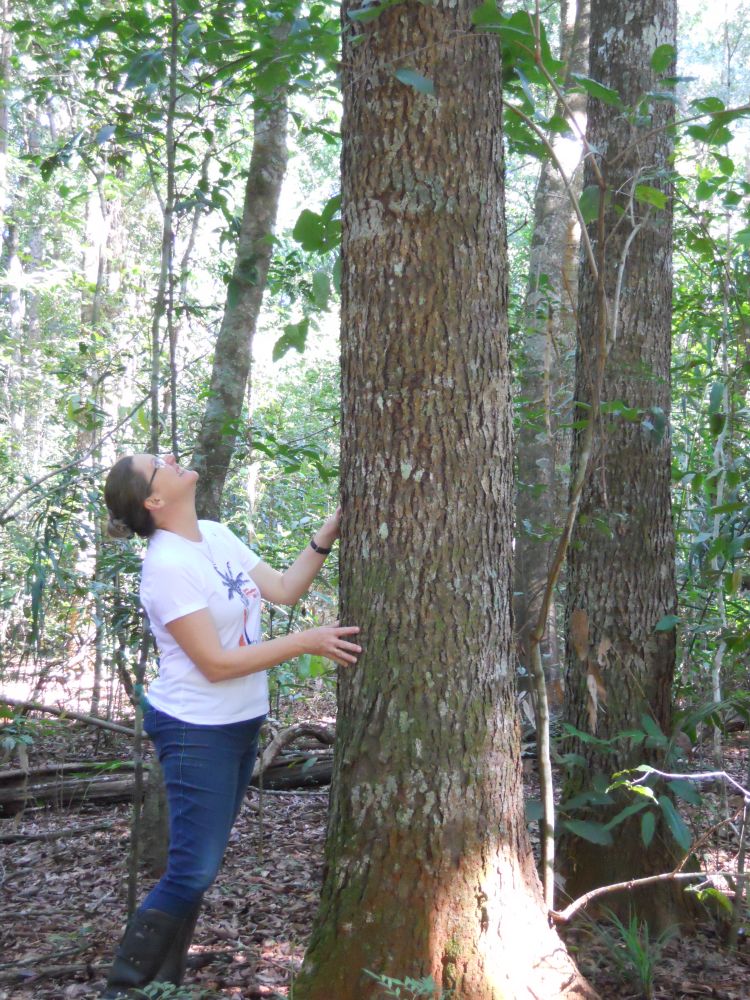
Professor Beatriz Marimon of Brazil’s Mato Grosso State University admiring a tall ‘bloodwood’ tree (Brosimum rubescens). This species forms rare monodominant stands, which are now almost all logged or deforested and in urgent need of protection in southern Amazonia.
Due to financial and resource limitations, researchers have typically favoured more accessible parts of the rainforest that are closer to research institutions.
However, many of the unstudied locations will experience severe climate or land use change by 2050.
The team argue that ecological research and the curation of scientific data are fundamental to understanding changes in Amazonian biodiversity.
Scientific investment and research cooperation
The briefing highlights the scale of expansion needed in scientific investment and regional research cooperation.
Tackling this challenge is essential to developing a complete picture of Earth’s richest forest that supports conservation, culture and climate change protection.
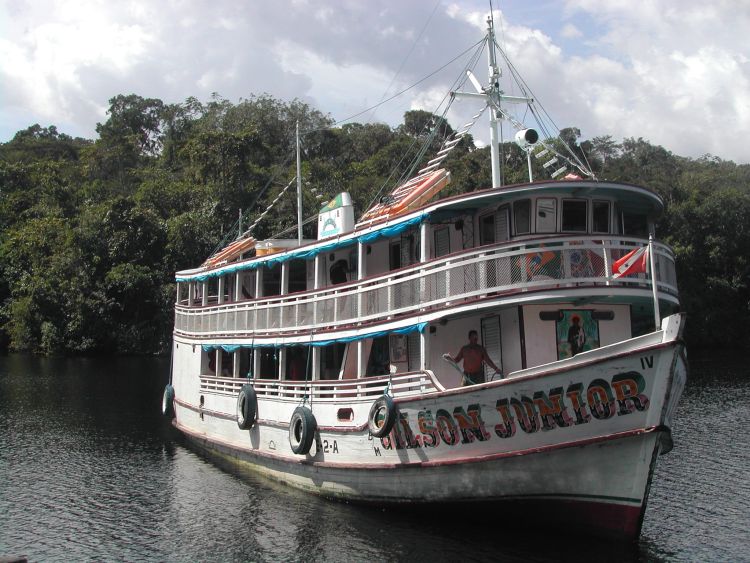
Boats are the buses of the Amazon and the complex river system is its original, intricate transport network. The difficulty of access has helped protect the forest but also means huge areas are still largely unknown to science.
Some of the group’s recommendations to Brazilian institutions include:
- Expand resources for ecological research in the Amazon to fill the knowledge gaps.
- Expand the quota policy for the Northern region.
- Invest in human resources in the region, including new research posts. Improve the employment of young researchers and local scientists.
- Support scholarships that address cultural complexity and socio-biodiversity knowledge gaps.
- Strengthen research cooperations through courses and projects that integrate the teaching and research done in the Amazon.
- Invest in equipment, asset maintenance and increased digital connectivity.
Sharing forest data
Professor Oliver Phillips became involved in this project due to his leading role in ForestPlots.net. ForestPlots.net is a hyper-collaborative network and platform that allows tropical researchers to share, manage and analyse forest data.
A key aim of this initiative is to reverse inequity in science. Professor Phillips explains:
“ForestPlots.net is at the heart of a major challenge in environmental and conservation research: How do we ensure equitable relationships among scientists from the global North, who have often been the users of data and those in the South who often play key roles in generating the data?”
Phillips and his colleagues in Leeds and beyond want ForestPlots to not only support forest environments but also the thousands of researchers and practitioners who work with them. They grow this communal resource sustainably and equitably.
Biodiversity in Brazilian Amazonia
In 2020, the Synergize project, funded by the Brazilian National Science Council, requested to access and analyse the biodiversity data from Brazilian Amazonia (ForestPlots.net Research Project #84).
This led to joint workshops in plot data management between a ForestPlots trainer based in Brazil and an Amazonian colleague.
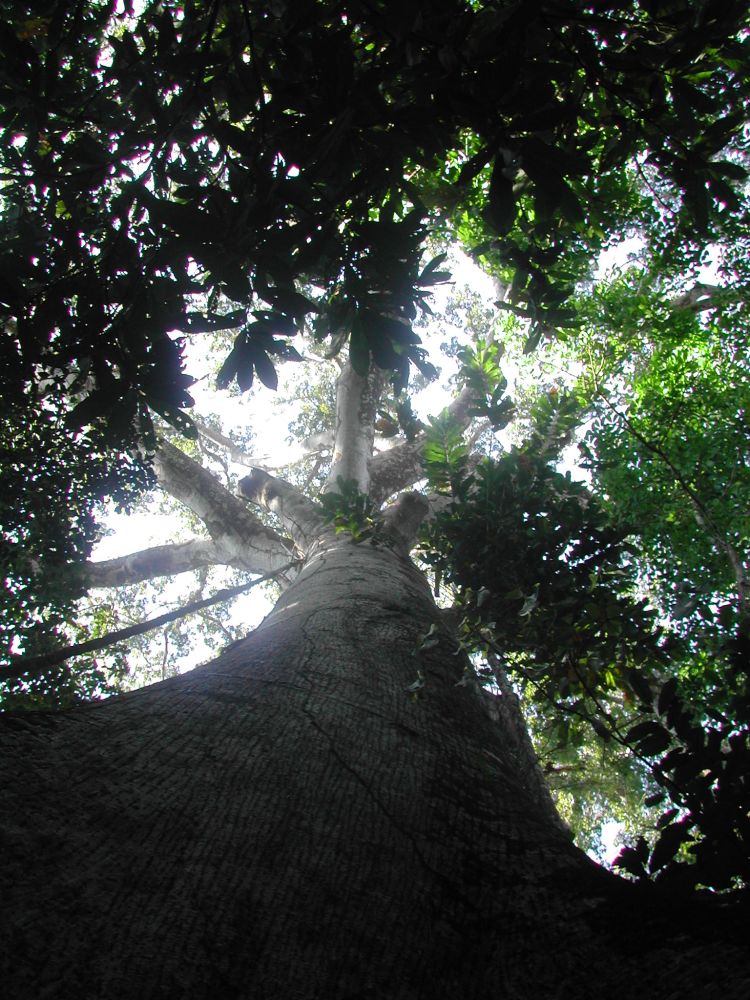
A giant of the Amazon, Ceiba pentandra, emerges above some of the most remote forests remaining in eastern Amazonia. Spiritually significant and revered as the mother of the forest in many Amerindian societies, this huge tree supports its own ecosystem 50 metres above the forest floor.
Led by early-career researcher Raquel Carvalho, they compiled the data from over 7,600 sites across the Brazilian Amazon.
Their research, titled “Pervasive gaps in Amazonian ecological research,” is now published in Current Biology.
Writing about the gaps in our knowledge of the Amazon, they state that “undersampled areas overlap predicted hotspots of climate change and deforestation.”
This highlights the importance of the policy brief, which calls for investments in and support for the research of these areas.




